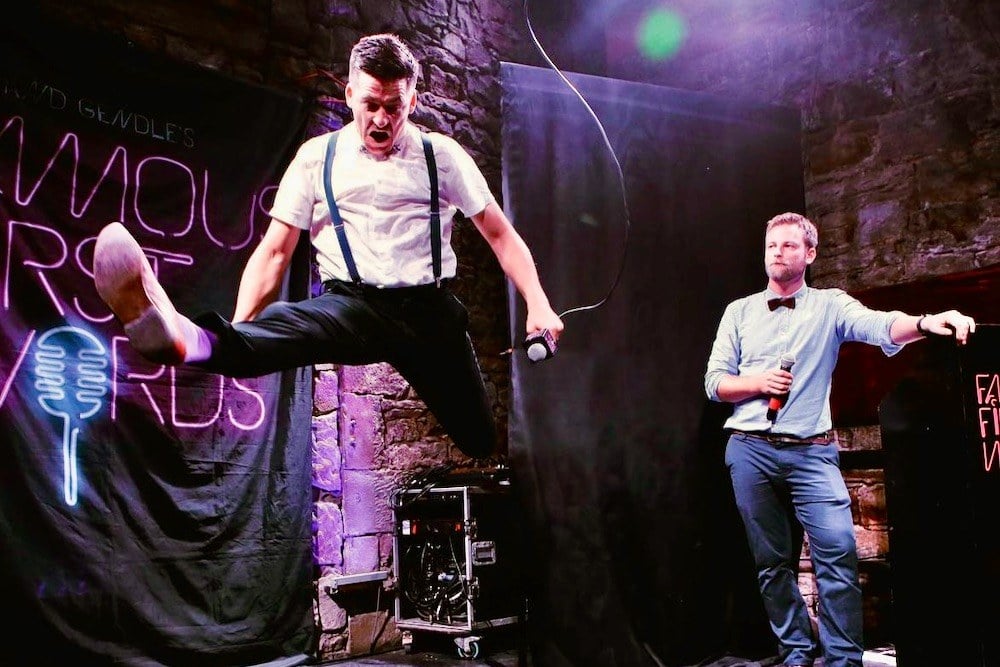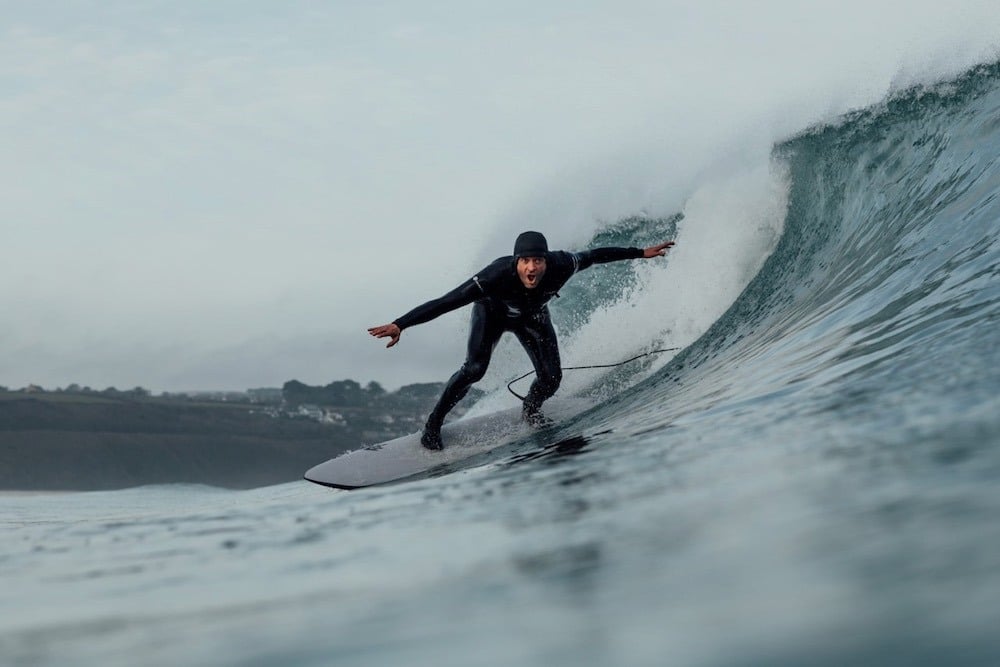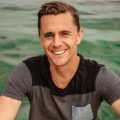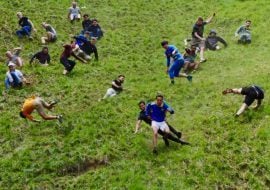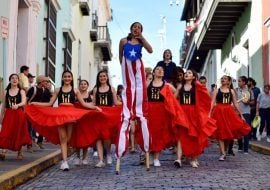Extreme and Adventure Sports: Alistair Gosling


Episode 24: Podcast with Alistair Gosling, CEO and Founder of EXTREME International 25 years on.
In this episode Oli Russell-Cowan chats to investor, entrepreneur and founder of EXTREME Alistair Gosling.
With a passion for extreme and adventure sports Alistair set out on a mission to build a TV distribution company and in 1998 at the age of 27 he had created The Extreme Sports TV Channel which was televised in more than 60 countries worldwide and by doing so The EXTREME brand franchise was born.
Today, EXTREME spans across events, media, marketing and real estate. Alistair sits on the advisory board of Qiddiya, an entertainment mega project being developed in Saudi Arabia. He is also an investor of Medshr.net the award winning app for Doctors to share and discuss clinical cases. Alistair is still an extreme sports fan and regular skier, diver, pilot and sailor.
Tune in for some of Alistair’s best and worst stories over the years running EXTREME and what he sees for the future of action sports and adventure sports media and industry.
Listen to the podcast:
Dive in and listen to this episode on Apple Podcasts and Spotify.
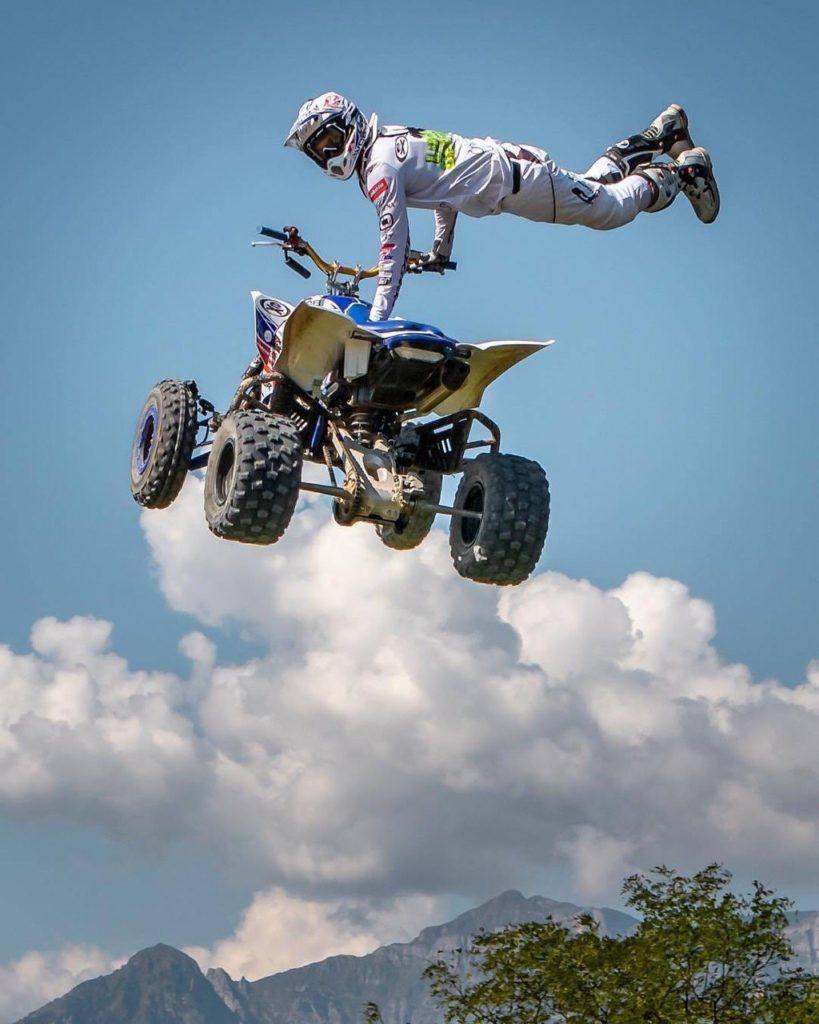
Read the transcript:
Rad Season: Hi guys, it’s Oli from Rad Season. I’m excited to be joined today by entrepreneur, investor, CEO and founder of EXTREME Alistair Gosling.
Thanks for coming on the show.
Alistair Gosling, EXTREME: Pleasure. Great to be joining you Oli. Thanks for the invite and the opportunity and interest in what we are up to.
Oli: No worries. Whereabouts are you at the moment?
Alistair: Through lockdown, I’ve been outside London, just in the hills near Winchester. We’re in the middle of nowhere. It’s been good from that respect in terms of being in the countryside not far from the coast about 25 minutes.
Oli: Have you been getting out?
Alistair: So randomly. Last week, I looked at everything and I could see a window to get the entire senior management team of EXTREME together in one place. So I wanted to do that.
We did a bit of research over the two weeks and Italy was one of the only countries in the world that week. We’re flying people in from the Seychelles and Dubai, from Riyadh from here from all over. Italy was one of the only countries even though they had that spike at the beginning, it’s now safer. So we ended up doing an off site last week in Italy. I bought everybody together in a big house and did four days. We did some some sports as well. It was really just looking at the business, what we’re doing as an organization on an island called Argentario down the coast from Rome. We all ended up there. So yeah, it was super cool.
Oli: Nice. You guys have hit a bit of a milestone. It’s been 25 years, since you’ve started EXTREME.
Alistair: God, now you’re making me feel old.
Yes. 25 years. Looking at the next 25. It’s super exciting and looking maybe a little bit retrospectively back at things but yeah, 25 years old this year.
It’s an interesting point, just in terms of today’s world. You grow these things, but they go up, they go down, they get sold these things happen, but it’s Yeah, it’s super cool. 25 years old.

Getting into Extreme and Action Sports
Oli: I’d love to talk about those early days. What was the interest with extreme and action sports?
Alistair: I was never a city kid, I grew up the in countryside. Water and mountains were my playgrounds, if you like and I had a massive love of nature and that whole thing. My parents were really into that area, my father farms. It really came down from a love of water and mountains. I was lucky enough to go to the Alps at a reasonably early age.
Actually, I was talking to somebody the other day. If you look at my qualifications, it’s divemaster, it’s pilot, I’ve got my boat captain’s license. I’m perfectly qualified ultimately to be on a beach somewhere or on a mountain somewhere.
In terms of my A Levels and qualifications in those other areas, I’m not so strong and I’m dyslexic as well. It came from a love of nature and sports and mixing all of that together from an overall perspective.
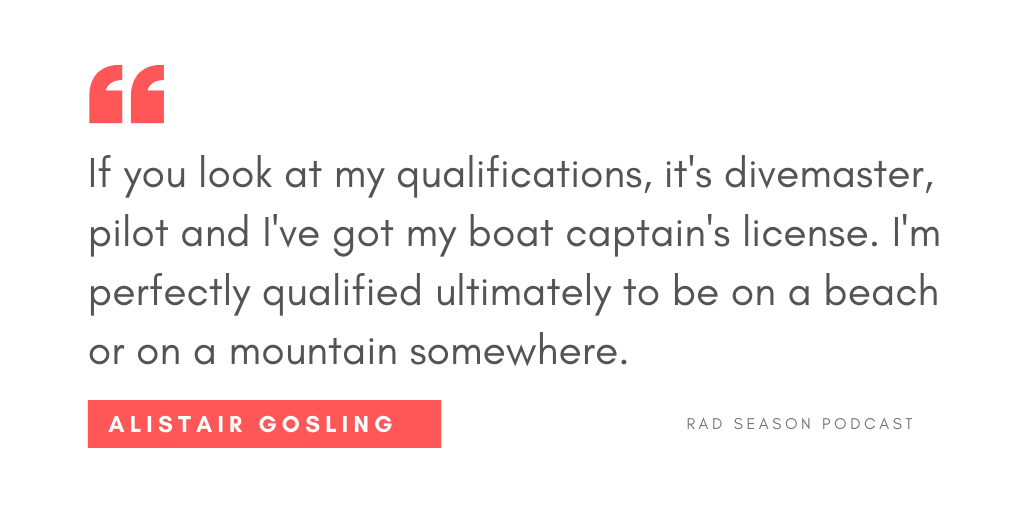
Oli: After school did you go traveling quite a bit, going diving and skiing. What did you do?
I ended up in school in Scotland, which again was all outward bound driven. The whole thing was very Outward Bound. I left school, didn’t know what to do, didn’t go to university and basically bummed around and went from job to job.
Traveling
I managed a bank for a year and a half, I sold mobile phones. I did all sorts of stuff just bouncing around. Travel wise I ended up heading to the Bahamas and the Caribbean and working for a marine research and environmental station there. I did that for about a year and a half. It was amazing on so many levels, a lot of marine research and that type of stuff.
I then came back. At that point, I was like, right, what am I gonna do? I’d read a book by Mark McCormack, who was one of these founding sports agents. The book was called ‘What they don’t teach you at Harvard Business School’.

Can I mix that up? I felt I didn’t want to work for somebody else, I’d work for other people through those years, straight after school.
Athlete Management
So literally, I rang my parents and said, I’d like to move home to use a corner in the garage. Is that possible? They were like, Oh, no, here we go. So I moved home and set up.
Initially we were focused on two areas, one was doing some athlete management. Trying to support some of the athletes that were out there.
Red Bull hadn’t even launched. I’m now going to show my age. They were just launching in the UK as I came in. Internet was in the early phases, there was no broadband, it was all dial up stuff. So literally, we set up a business doing athlete management and doing TV production and distribution and build that business.
I originally had a business partner a lovely old friend of mine called Tom Hutton, him and I were in that office driving it. He got a lot of pressure home wise to go and get a proper job. My dad was saying, go get a proper job all the time, as well. Everyday I saw him.
Tom decided time out after about a year. He left and then that was a bit of a low point but I continued on. We stopped the athlete management and then focused in on the TV side of things.
TV Distribution Business
It was at that moment in time where the sports were beginning to really gain popularity, you couldn’t get them on the internet, you could only get them on videos. So we set up a TV distribution business hunting for creators, content and producers who were making amazing films from around the world across mountain bike, surf, skate, snow, all the sports. Then taking those films and packaging them up.
We went to a lot of trade shows. TV channels would call us, and we became known as a specialist in this space. We focused on the niche that we all love. So TV channels would call us and say we’re looking for a snowboard series or we want some mountain biking, or a mix of the sports if it was a mainstream channel.
So we started selling packages of one hour a week for 52 weeks, or maybe it’s half an hour, whatever it might be. The sports grew, we grew and we grew a super cool business. It was probably 12 of us by the the time it got to a good stage. A lot of trade shows each year, doing catalogs and just a lot of networking with producers and all those kind of things. It was great, a really good point.
Extreme Sports TV Channel
Oli: How did you go about raising money to try and put the channel together?
Alistair: So I remember it was probably 98. I was on my way to a trade show and thought with the TV distribution there was a limit to where we’re going to take that right. So I had this idea we could launch a TV channel around our space, called it what it was on the tin at the time the Extreme Sports Channel.
We put a plan together and we went out and we spoke to lots of investors, lots of bankers. Many people said, we love the idea, but it’s a no. There’s many reasons why. If you look at us as a management team, I was 26 and the experience was lacking. The idea was good, but the experience is lacking.
Eventually, about a year and a half later, a year and a half of knocking on doors we met with a company called UPC. Who were ultimately owned by a company called Liberty who own Formula One and all sorts of other stuff but they were a huge cable company like Sky but operating in 14 countries.
The Chief Exec there a super guy called Mark Schneider and another colleague of his, Steven Kern. Steven saw it and Mark saw it and had that conversation. They were launching six new channels. We ended up partnering with them and raised $35 million.
Then we went on to launch it in 68 countries. That was a lot of work. That was 10 years of hard grind flying around Europe and all the rest of it, but also super fun working in the space you’re passionate about.
Once we launched the channel, I moved to Switzerland in the mountains in the winter, and then for the summer back in the UK. It was an amazing moment in time, absolutely incredible.
The whole thing was growing, Tony Hawk, everything was just growth, growth, growth around the whole space and the lifestyle took off ultimately.
Oli: During the beginning of it was that the boom time would you say over the last two decades, or has it gone through waves?
Alistair: It’s definitely gone through waves, I think.
There was definitely a boom moment at that moment in time, where it became really popular, then it probably dropped off a bit. Different sports kind of move up and down depending on what’s happening. You might have a surge in skate, but you’ll have a down in one of the other sports. It’s weather dependent and all those things.
I would say we’re in a surge now and COVID has driven that. Sales on the product side has gone through the roof. People at home, they can’t travel so that they’ve gone more homebound and which case they go and buy a surfboard or a paddleboard or whatever it might be. I think we are in the moment of massive growth in this space, which is super cool.
I’ve seen it go up and down over the 25 years, that’s for sure. The 2008 crash there was a definite down. But now we’re in an up.
Oli: When you were working on the channel did you primarily focus on the TV channel and on the distribution side of things, or were you looking at other aspects in different parts of the industry?
Alistair: From an overall perspective, but for the first big chunk for the first few years of the channel business we did nothing else. We were focused on launching that channel in as many countries as possible, making the programming as good as possible, inspire and entertain our viewers.
What amazing stuff can we put on there that makes everybody go wow.

When we launched especially for the first few years, pretty much every pub in London, for example, would run it at night. That was quite a cool thing, the screens in pubs. They’d either run fashion TV or they’d run us and so it was very cool running around London and going into pubs or bars and you sit there having a drink with friends and in the background the channel is on.
UK launch for us was country number 18. So we launched in Holland to start and then did lots of other country launches before the UK. So with my mates, I’d say, we launched this TV channel and they’re like yeah, sure.
We launched to all these other countries and then eventually we launched in the UK. And in fact, when we launched in the UK, we had an amazing launch party, we took over a nightclub called Home Nightclub in Leicester Square. I asked everybody I’d ever met to that launch party because we just needed numbers. There was a pressing the Launch button on the channel into the UK on Sky and the other cable platforms. It was a good moment, very, very cool indeed.
Oli: I grew up in London and remember watching it as a kid and teenager when I was growing up, and it was good. All the sort of aspiring stuff. One of the reasons I guess I got heavily into surfing was seeing it there. The only other options were waiting for the monthly magazines to come out, whether it be skate, surf or snow. It was cool to have it on TV.
Alistair: Hearing you there. If there’s one thing I’m just super proud of. We launched this channel in 68 countries and 100 million homes and if we’ve inspired people to go, Oh, I’m going to go try that sport, right, we’ll go and do that because it looks amazing.
If it’s then done that, then that’s just amazing. Somebody might have taken a path, which was not so good and instead they turned left not right, in which case, they ended up doing the sports and not maybe doing drugs or whatever it might be right. Obviously, now there’s YouTube, there’s Facebook, there’s all the other mediums in terms of platforms to get content.
Oli: What was the journey after launching the channel in all those countries?
Alistair: So we had an opportunity. Liberty, the large corporate guys who we partnered with, there was some pretty interesting changes with them.
Basically what I saw was the market was changing, right. As digital kicked in, I was like, Whoa, okay. Am I going to be watching TV or am I going to shift into digital?
We got it a bit early, but probably 12 years ago. I thought, okay, we want to be thinking forward here. So there was an opportunity and I said to them, Look, we’d like to buy the brand. We had a 50% stake in the TV channel, we’ll sell you our stake in the channel business and we’ll get out. You guys run that and we’ll do some other stuff.
So we did that deal. That was a great move from our perspective. If you look at the channel now it’s in 25-30 countries, it’s obviously slowed down. It hasn’t had the growth and really where it’s headed to digitally is where we’ve focused.
Now we’ve got a business that is focused around the brand, which we bought. At the highest level is around brand and around community. So our community is approaching 20 million either directly or indirectly connected fans, and it’s focused around sustainability and environment, which we’re really working on and then technology.
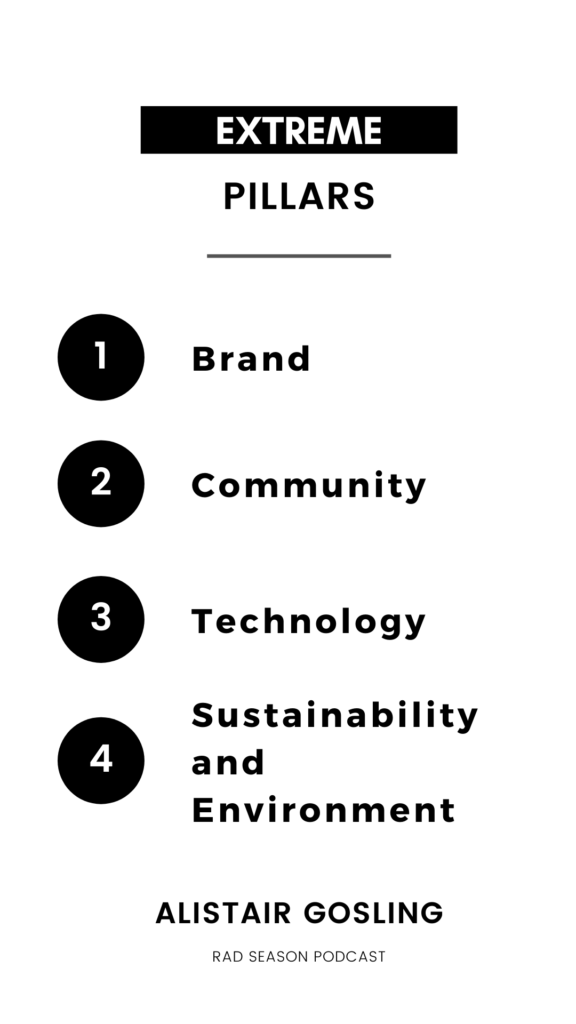
Brand, Community, Technology, Sustainability and Environment are the four pillars at the highest level. Then we’ve got three divisions: Media and Marketing, Events and Destinations where we are developing the brand into hotels, parks, resorts and accommodation.
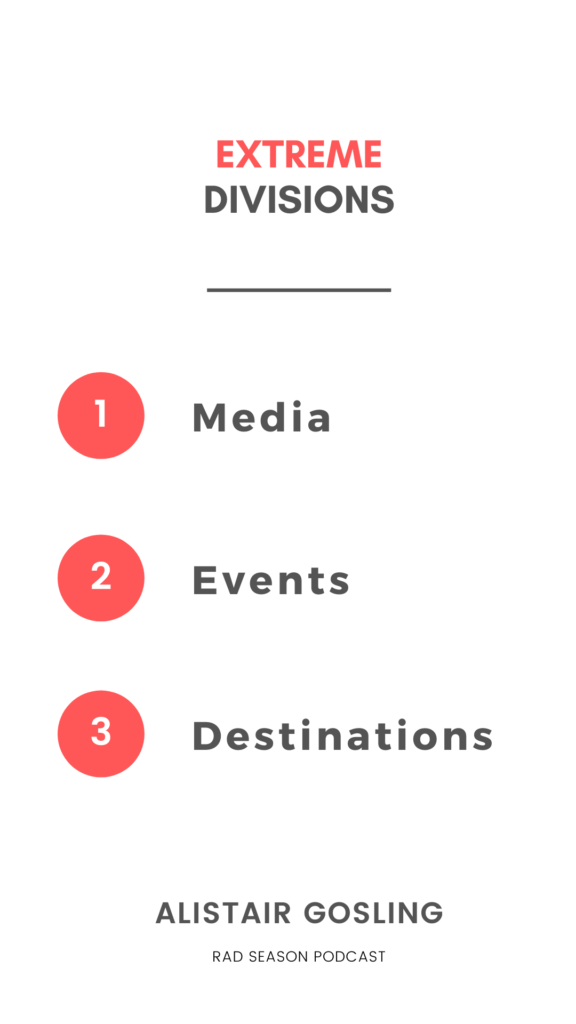
The Extreme Team
We’ve got an amazing team of people from Ryan Maxwell who runs the media business to James Cooke-Priest who runs Events and Ben Barker who runs the destinations with Nicola Packer, our COO who sits alongside me and really drives things.
Having done it with the channel once I really feel we’re on the move doing it again, but just slightly different in today’s world right now with with some absolutely fantastic people around me as well.
Oli: Looking at destinations, events and media was that all done at the same time or did you launch into events and then afterwards destinations. How did you go about that?
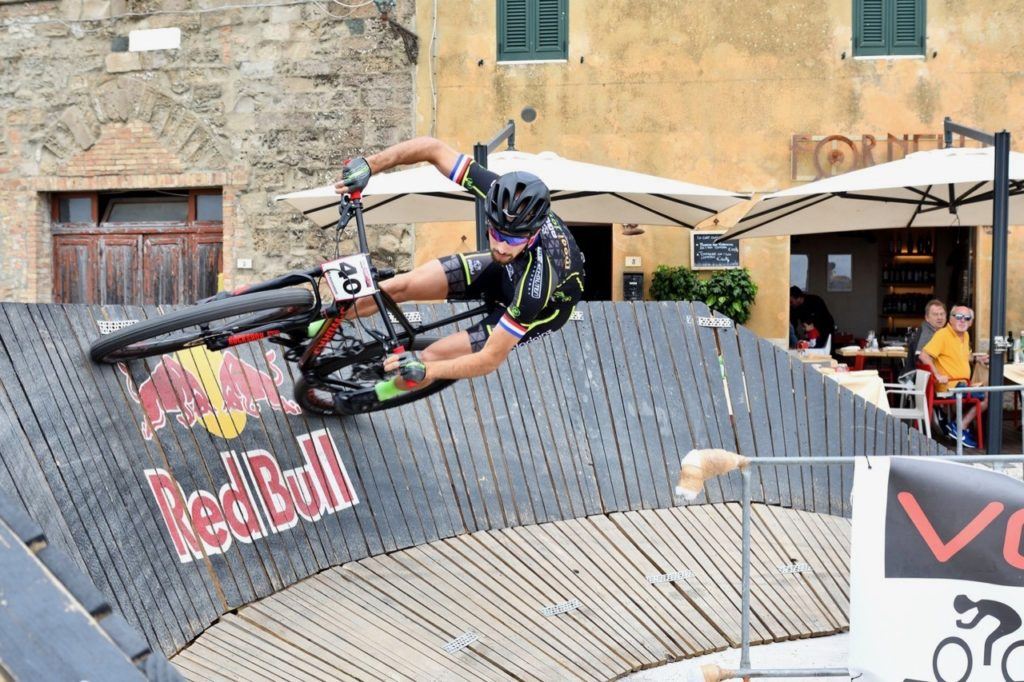
Extreme Media
We came out of the channel and we knew media. We’ve definitely focused over the last eight years on the media side of things. So really building out that part of the business was our main objective.
If you look at the media business now we’ve got a media network running, as I said, approaching 20 million fan base. That media network is running at between 50 to 100 million video views a month, so it’s doing some reasonably good numbers.
Then alongside that is Extreme Studio producing content and the marketing agency. If brands want to activate in our space we can then work with them and put the plan together around ambassadors, normally events, storytelling, content, all of those things. That was really where we grew from and focused the first 5-8 years out of the channel business.
Extreme Destinations
Then on the destination side of things, it is long growth that one because it’s real estate based. It breaks down into three divisions:
1) Building out adventure indoor and outdoor parks around the world. A guy called Ben Barker, as I mentioned earlier, he runs that globally with his team and is doing an amazing job.
2) You’ve got the Extreme Collection doing accommodation, tents, tree houses, lodges and hotels.
3) Then Consultancy working with governments on the growth.
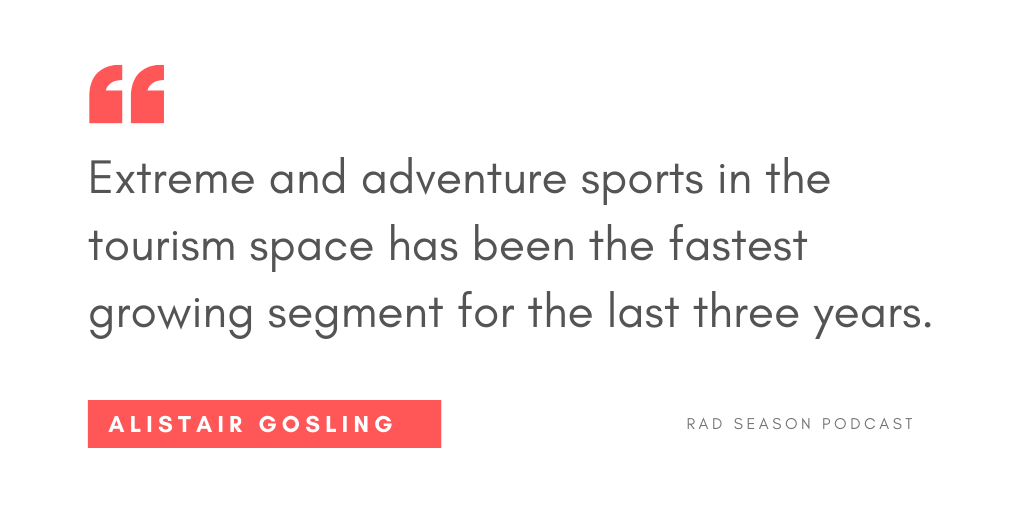
Globally, it’s not the biggest, but in terms of the segments, but it’s the fastest growing. So a lot of government’s are looking at this and going, Okay, you know, tourism is a big driver, obviously, COVID is affecting that. This segment of the market can be very home orientated. We just touched on that a few minutes ago in terms of sale of boards and bikes, and everything else is massively up.
We did media then destinations, long term development and then events from a process perspective.

Oli: Has there been any popular countries with the rise of these sports or any areas you’ve focused on?
In terms of countries in the sports, a lot of its topographical you and I both understand that. If you look at the surf scene in Hossegor the waves there are amazing, if you then take the Alps you know. So different sports, different countries.
Adventure Sports in The Middle East
We’ve had a real upsurge coming out of the Middle East at the moment. The government’s there are very forward thinking. They’ve researched and analyzed what’s growing, what’s not, pinpointed that and then made that a real key pillar they want to grow.
We’re super active across a number of Middle Eastern countries. We’re very active in the Kingdom of Saudi Arabia, where they have really no tourism. They’ve got 33 million people, and they’re now right, we’re gonna grow our country. It’s really incredible to be watching that once you get under the skin of it, and there’s some bad press around that. But once you get under the skin of that, then you meet the people. 50% of those 33 million are under 30. You’ve got a lot of young people, and they really want to break out and build their country into something amazing. They have a really interesting leadership, who’s very young as well. The Princess is 35.
Then country wise, you know, we’re operating and driving stuff across Europe, Middle East, Africa, we’ve got a number of projects moving in Asia a couple in America. It’s reasonably global. It’s definitely a focused on Europe, Middle East and America as it stands right now.
Oli: You’re working on a big project in the Middle East, Qiddiya which is a mega complex.
Alistair: I’m on the the international advisory board to Qiddiya. That project is the world’s largest sports leisure and entertainment complex. It’s just utterly enormous, just huge. It’s a vision of the country overall and watching that develop.
‘It’s four times the size of Walt Disney World’
Your building a destination and it’s got sports in it, it’s got mosques in it, it’s got theme parks, water parks it’s just a whole destination development. There’s complexities around that and the challenges and supporting the management team and trying to join us support at all levels is highly interesting.
I’ve been doing that for three years and just watching the whole growth in the Kingdom. That’s one project of many from an overall development perspective, which is super cool to be involved in.
Oli: Now with everything happening with the pandemic, obviously events have stalled for a while until there’s a solution. Are you seeing any particular trends or anything that you guys are working on within the industry at the moment?
The Future of Adventure Sports Events

Alistair: I think we all thought it was going to come good after a few months, right? Here we are in October, and you can feel it’s going to be set to stay for a while. So what we’ve done a lot over the last three to five months is look at event formats that aren’t related to mass participation, because mass participation in whatever level is going to be off the cards for the moment.
We’ve developed a number of formats, we haven’t announced them yet. But we’ve got four different formats we’ve developed, which we think are more COVID proof than just doing a large festival or whatever that might be.
We’ve got the IP and the events that we own that are mass participation there sitting ready to go on that one. We’re super active supporting a number of events and rights owners coming into Saudi so our network, having been there for three and a half years office space team on the ground, all those good things.
So we’ve been super active in that regard, as well as pinpointing the right partners, taking those in as the Kingdom comes on stream as well.
Media we’ve kind of doubled up, so it’s definitely up on all levels. The destination side, it’s just trucking along nicely in terms of home development, and looking at staycations on that side. And then the events part is definitely been hard here along side so many other industries.
Oli: On the digital side have you looked into doing any kind of digital events? Have things moved from the physical side of things across to virtual and online?
Alistair: James Cooke-Priest who runs our events business he used to run Top Gear live. One of the areas we are definitely looking at is the digital side, egaming and all of those things.
We’ve got one format that’s starting to develop in that area that looks really interesting, so we’ll see what happens on that one. But I think when you’re in the event space, you want the physical you want to be there. It’s about working through how we can really do some stuff within the framework that we’re going to need to be operating in mindfulness of COVID.
Oli: Are there any projects that you have coming up later in the year/ start of next year across any of the different divisions?
Alistair: Lots.
The development in Sheffield on the Extreme Destination front is a huge project for us. It’s got a lot of focus right now, in terms of driving that out. It’s just the most amazing site, so close to the city center, 60 acres. There’s been delays because of COVID but I’m excited for the city from an overall perspective.
Projects wise, one of the things we’re really looking at is where we can look on a national country basis. We can bring our destination activations, then bring in the events then bring in the athletes that we support and sponsor and then bring on the media, the storytelling. So you get a kind of country focused package. Formula One does it, big sports events do this really. Formula One comes in builds a 100 million dollar racetrack, you have one event a year and the racetrack is used a bit, but not all the time, right.
Our goal is to bring our brand in, bring our destination development, which builds a collection food, beverage, retail, accommodation. All the activities which are used permanently, and then bring in events once a month, 12 times a year or whatever that number may be. Then bring in the media behind that to drive out not on a once a year basis, but bringing in storytelling all the way through.
That’s really interesting in terms of the coherent offer that we can deliver. This is what Walt Disney does and Formula One. There’s all these kind of bits and pieces in there.
We’re getting really good traction from that from a global perspective in terms of governments, which is super cool.
Oli: The Sheffield project, what’s included in that? Is it a multi action sport and entertainment park?
Alistair: Exactly it has multiple sports, there’s ski, there’s mountain bike, there’s snowboard, etc. It’s super exciting on that front.
Oli: Nice. Have you looked into wave parks?
Alistair: Absolutely. In fact, the first wave park in the world was Wild Wadi Adventure, which is just outside Dubai. Ben Barker, our Head of Events developed that and ran that for a number of years operationally and headed up the management there.
We’ve got waves planned into some of the projects we’re working on. It’s hugely exciting in terms of the overall marketplace. We think there’ll be some interesting consolidation, I think as these things develop and build out. It’s going to be good for the industry.
Oli: With any of the current innovations going on, are there any particular sports, that you guys are seeing a definite focus on say, e-biking or if you’re looking more at eSports, things like that?
Alistair: So we have a very agnostic view looking at all. You’ve picked up there on ebikes. If you talk to many of the ski resorts it’s been amazing, right, especially even after COVID the numbers are just through the roof completely.
Oli: What’s the best way of people following EXTREME keeping up to to date with what you guys are doing?
Alistair: Multiple sites, obviously look us up on Facebook, TikTok, Instagram in terms of that. Then on the business front I have an amazing team around posting pretty voraciously on Extreme’s LinkedIn accounts.
Oli: Good stuff. Great chatting to you Al. It’s been good finding out more about EXTREME over the years and we’ll definitely look forward to seeing what’s going to go on later this year and what projects you guys have coming up next year.
Alistair: Oli, listen, thanks for the interest and opportunity. Great to chat and I think you’re traveling to Spain.
Oli: I’m heading off to Spain tomorrow. Driving there across from Portugal.
Alistair: Safe travels. Enjoy your time.
Oli: Thanks Al.
Watch the video:
Missed the last episodes? Check them out!
Episode 21: Simple Session – Risto Kalmre
Episode 22: Event Travel – Andrew Lockhead
Episode 23: Action Sports Personality – Chris Cote
Feature image credit: Felix Lam/ Unsplash
Last updated on Feb 10, 2021Have you subscribed to our Newsletter or Podcast? Listen to us on Apple Podcast and Spotify and follow us on Facebook, Instagram Twitter and YouTube.
Accommodation near London, UK
Rad Season is providing you with rentals and hotels at the lowest prices available online. Book your stay near London, UK using the map below!
